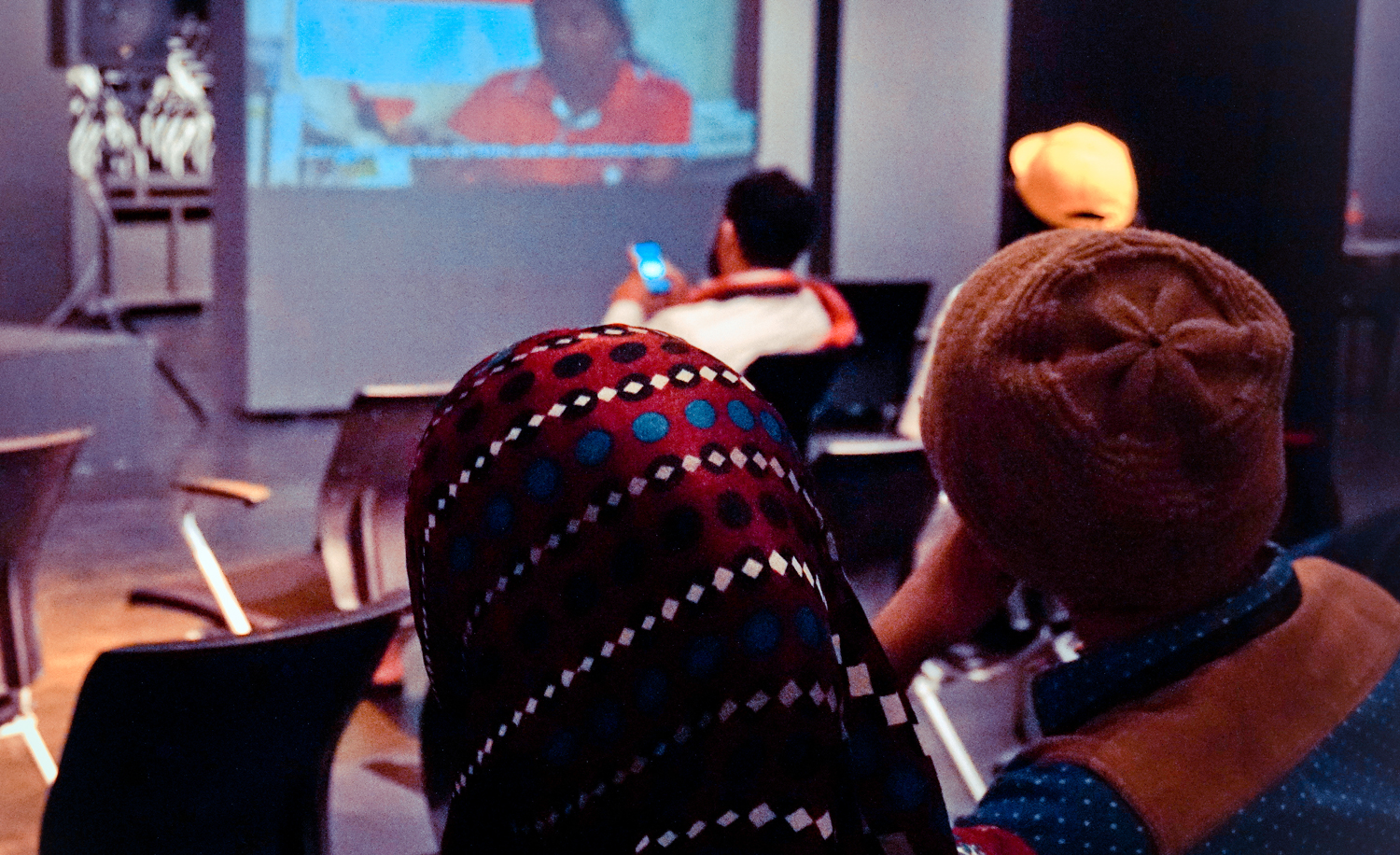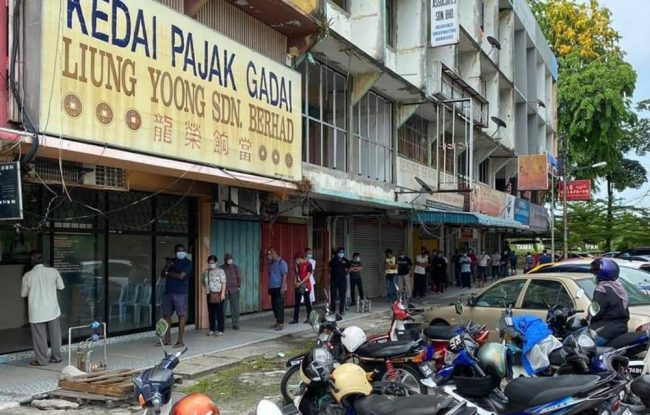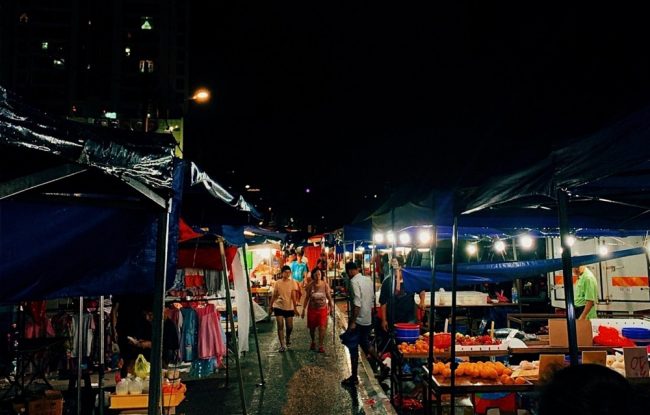As scholar, I’ve always been keen to understand how regular people make sense of the entertainment media they consume. I look at how media piracy’s persistent presence in the average Malaysian’s media diet has changed the way people see and place value on their entertainment. From interviews conducted with local consumers from urban areas, I’ve encountered a variety of characters including someone who’s perception of piracy was so skewed, she considered legitimate services like Netflix to be pirated media.While I was not particularly surprised by how candid and open my participants were with regards to their use of pirated media, quite a few opined that entertainment media was effectively “free” due to the presence of piracy. If you wanted to watch something, someone out there would have graciously made it available on the Internet for anyone to access with no fees. Yes, the power of the Internet has democratized the modes of access to entertainment and in a way removed the barriers of cost and made it into a public good.
The findings from these interviews yielded interesting data for my own work, as it shed some light into common media practices. Yet, upon closer inspection, I noticed some glaring flaws in this understanding of the entertainment media ecology that revealed the extent of not just my participant’s privilege, but my own as well.
Pirated media is not truly “free”, nor will it ever be. While the media product itself may be acquired without an exchange of funds, reaching this point requires a sizeable list of structural and material scaffolds to enable this act. This article presents how the simple act of watching “free” pirated TV shows varies greatly between people in an urban environment and others who live outside these urban centres. This act is achieved in two parts: getting the equipment to watch it and using an access method to acquire it.
The basic equipment that you use to watch TV shows is the most obvious form of privilege that comes from having access to wealth. The more money you have, the bigger your viewing screen with even more pixels to make your viewing experience as crisp as possible. You can further embellish your viewing experience by investing in a home theatre setup or soundproofing your room so you can burst your eardrums at your own whim. Less obvious forms of privilege are just the fact that your choice of devices to purchase are often the result of having access to shops and marketplaces. Living in a populated urban environment gives you great access to shops that sell a huge variety of TVs, computers, smartphones, tablets, and media players. While online stores are bridging this gap, it still doesn’t beat being able to just go to a physical store, browse their selection and make an informed purchase there and then.
Another form of privilege is just the level of tech savvy that is needed to operate modern day media devices. Growing up in an urban environment exposes you to high tech devices from a very young age as you get exposed to modern day interfaces of computers, smartphones and the Internet. This base knowledge, which many take for granted, has been inculcated through years or decades of indirect learning via osmosis and presence. Folk in the periphery, enjoy no such background and have an uphill battle to learn and use modern devices. There’s a reason why these Android streaming boxes are growing in popularity as it levels the playing field for piracy between savvy and non-tech savvy consumers.
The access methods available for media varies greatly depending on where you live. Internet penetration in the country is steadily growing. According to our own department of statistics, the digital divide is slowly diminishing as the number of internet users has grown from just a little over 58% in 2013 to a rather respectable 71% by 2015. While impressive, the devil is in the details: the vast majority of people still use wireless Internet and are generally reliant on the use of mobile phones to stay connected. This is important because most wireless broadband plans often charge lower subscription fees with rather limited data caps as opposed to fixed Internet broadband services that are usually more expensive but allow unlimited access. Access to fixed Internet is also limited to the availability of these services (based on infrastructure and population density) which makes it even more of an urban boon. This has an effect on piracy since the preferred method to view pirated media online is through pirated streaming sites (which are easier and more accessible than regular download sites), and when one is counting the number of downloads they have per month, that is a luxury they can’t afford to use despite it being free online.
These two steps aren’t the only forms of privilege as another more subtle form exists as a result of the large divide between urban and non-urban: pure exposure. Being in an urban environment allows one to be directly and indirectly exposed to a multitude of media, especially foreign. Not just limited to Western media, these include the ever popular media from India, China, Japan and more recently South Korea. Whether they be discussed over the Internet or social media, or easily accessible through various online services, urban audiences can easily immerse themselves into each of these genres with ease.
Audiences outside the urban centres do not get that luxury, and when combined with their lack of access and equipment necessary, makes just finding entertainment a laborious task. In a study conducted by Princeton University, they found that impoverished households often have higher levels of stress as their thoughts are often filled with worry and concern over their financial situation, which greatly burdens their mental ability to engage in anything else, especially hedonic entertainment. As my participants mostly noted, entertainment is rather frivolous and optional in your life; if finding entertainment is going to be onerous, then whatever’s available on regular television is going to be enough and non-urban media user diets will stagnate or revolve only around what is available over local terrestrial television.
So what has engaging in an illegal form of media access have to do with privilege? Well, to be frank, everything. When you have privilege, it indirectly influences even the most simple and trivial of activities such as watching something “for free over the Internet” – this activity is the net result of privilege that most people take for granted. It is these simple things, that urban folk take for granted that is slowly, but surely, increasing the divide between the highly urban, globalized liberals with the rural conservatives.
The Trump presidency and Brexit are two examples of how those with the privilege of access and knowledge fail to account for those that do not share those same privileges. Without these privileges, old ideas and values will persist and any attempt to change them (especially with disdain or condescension) will just make them hold on to it closer. I cannot help but notice a similar situation happening in Malaysia with the general elections playing out like a game of tug-of-war between the urban opposition and the rural incumbents. It can be easy to blame those who lack knowledge or exposure for voting against their own interests, but again, that kind of talk betrays this very privilege. Just visit one of the many forums or comment sections of various Malaysian sites and the blame game is strong with people accusing voters from rural areas including that of Sabah and Sarawak (which have their own set of issues with privilege as well).
Being aware of your own privilege is not just about acknowledging that you have it, but understanding how it has affected your way of thinking and behaviour. Further reflection is also needed to understand how the lack of this privilege may influence your world views and opinions. While I provide the example of accessing “free” pirated media here, the presence of privilege has great impacts in how people think about their next meal, the clothes they buy, what time to wake up in the morning or even just deciding to use public transportation. It’s easy to think in absolutes about the less fortunate, but it can be downright shocking if you think about it in just the day-to-day activities.
In other words, it’s not just about imagining yourself in someone’s shoes, but includes their socks, pants, and lives. There should not be a divide between urbanites and those from rural areas, but rather it should be a growing process to ensure that the benefits are not just reaped by the few in cities but shared with all.
This is the reality that we as Malaysians face, but that is not fixed, nor is it determined by our government; we can break out of it and it starts with each of us taking a cold hard look at our own lives and finding ways to consolidate with our fellow countrymen.
Benjamin Loh is an avid scholar, part-time writer, and all-time computer gamer. From his love of computer games and visual media such as films and television, he has always had an interest in understanding how media technologies shape the cultures of people that use them which in turn changes society at large.
His current PhD research looks at how pirated media affects how regular people make sense of their media and how it affects their use of it. By understanding how Malaysians make sense of their use of media, Benjamin believes that will reveal better insights into contemporary society that will eventually bridge the digital divide of privilege.
This is the opinion of the author and does not necessarily represent the views of IMAN Research.




